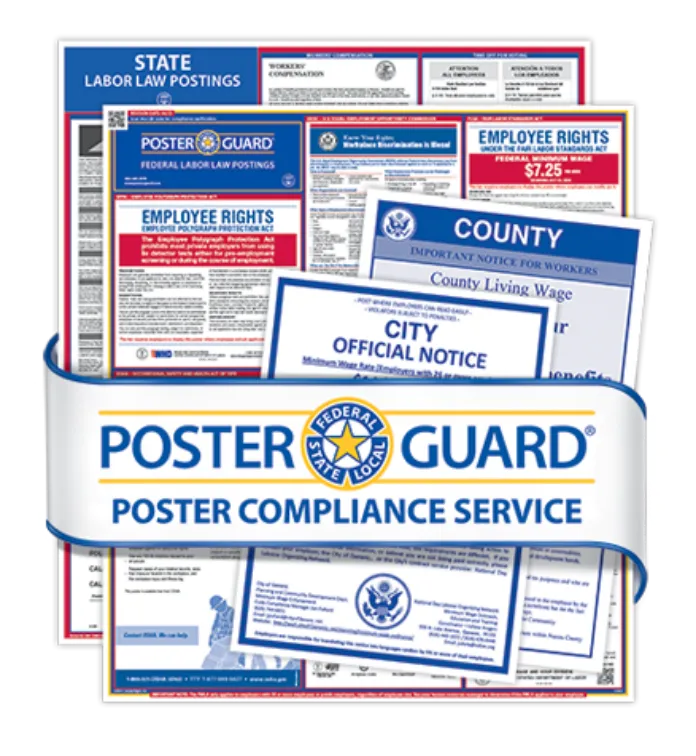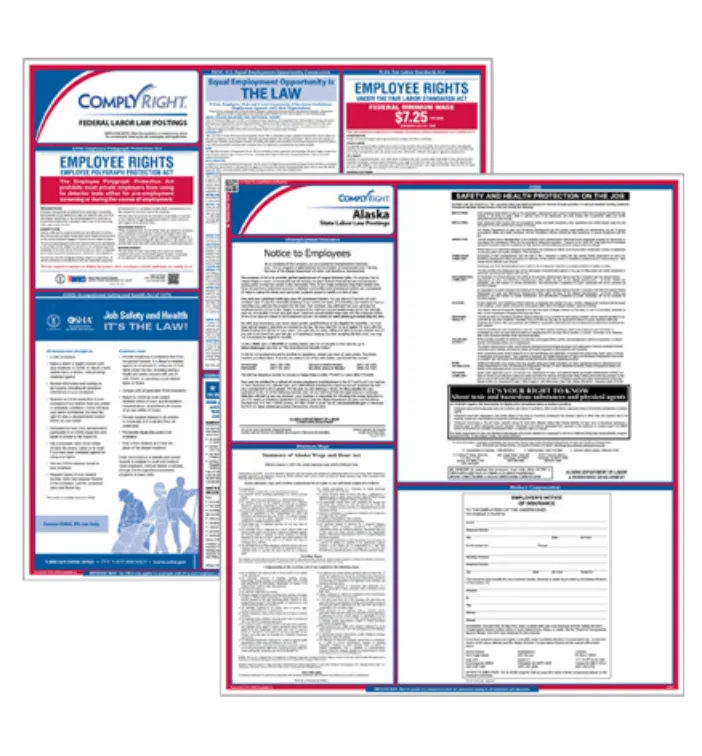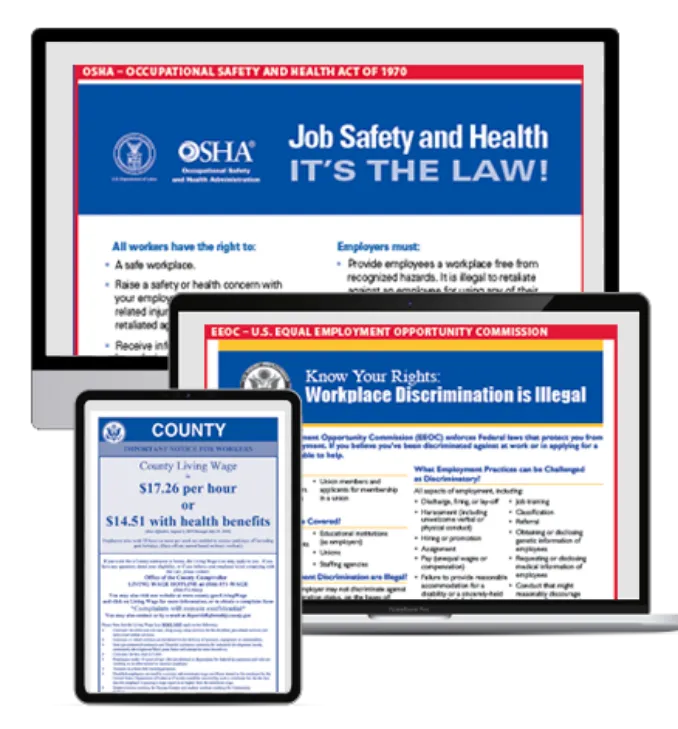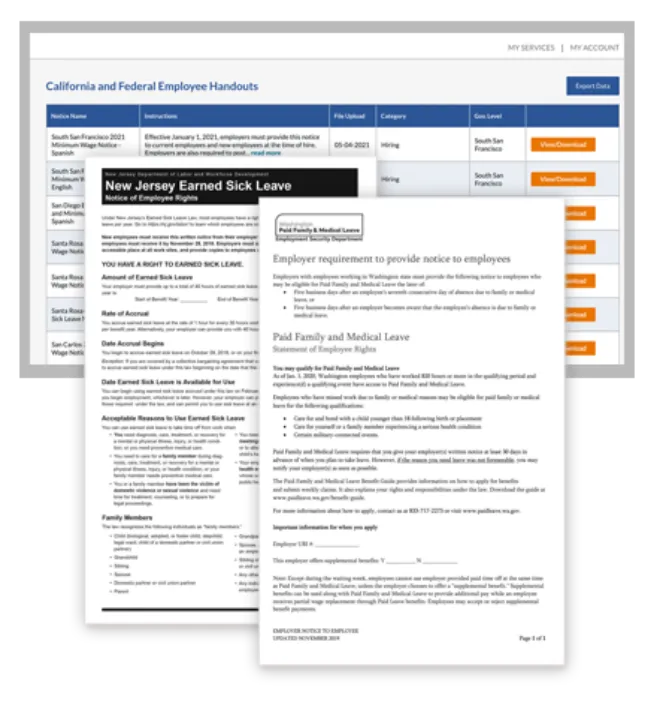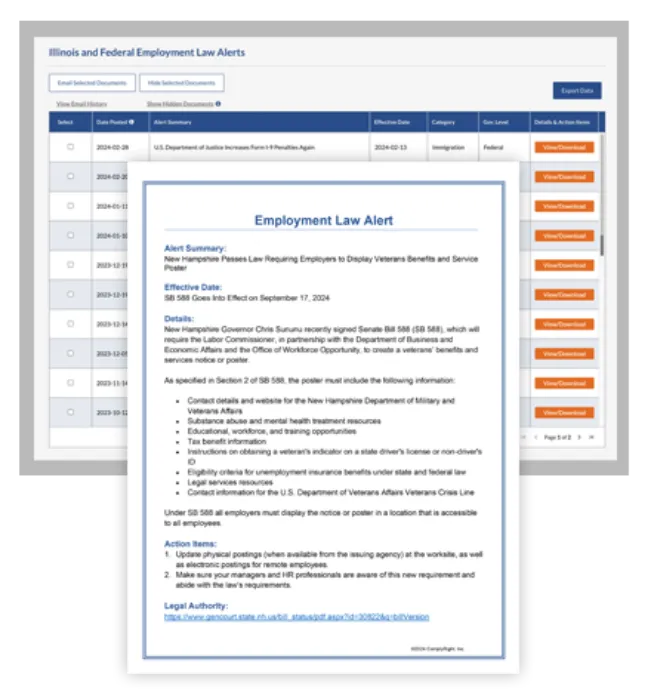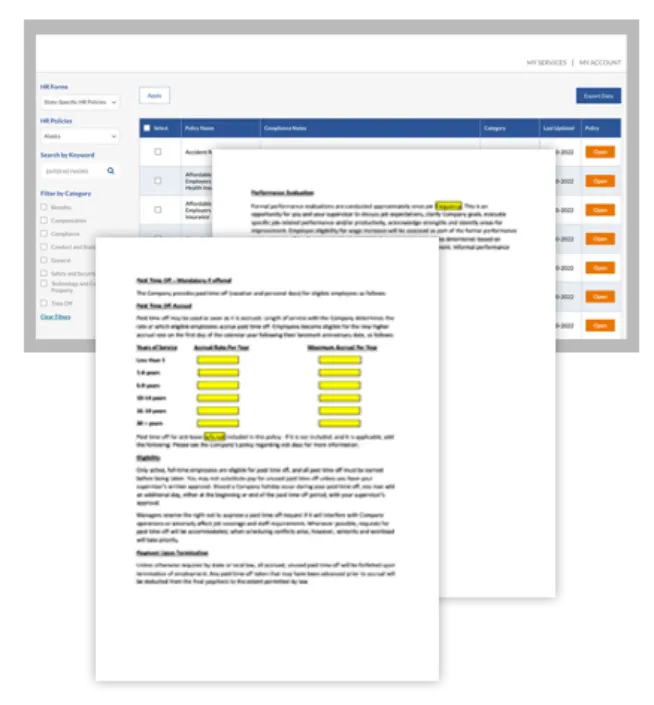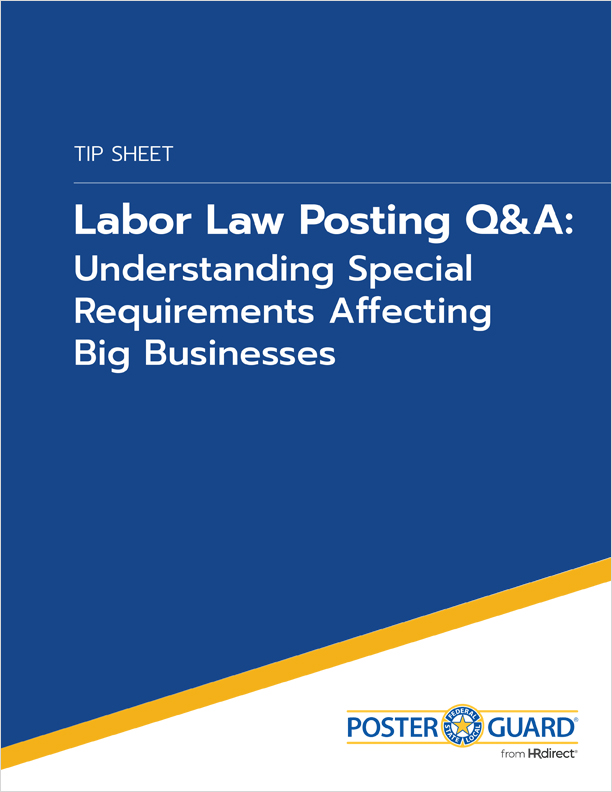Lillian Chavez, Esq., who heads the expert legal team behind Poster Guard Plus™, answers questions about this complicated law.
Q: I have 45 full-time employees. Is my business required to grant FMLA leave?
Whether your business is covered depends on its size. Under federal law, the FMLA applies to employers with 50 or more employees on the payroll for at least 20 workweeks in the current or preceding calendar year. Coverage is based on total employee count, even if those employees work in different locations.
Employee eligibility is a separate issue. To qualify for FMLA leave, an employee must work at a location with at least 50 employees within a 75-mile radius, among other criteria.
Q: My state has its own FMLA requirements. Which rules should my business follow?
In addition to federal law, many states have their own leave laws that may provide greater protection. When federal and state laws differ, employers must follow the law that is most beneficial to the employee.
Some state and local laws apply to smaller employers — for example, those with 20 employees — or may allow longer leave periods and paid leave provisions.
Bottom line: Before denying a leave request based on company size, make sure you understand all applicable federal, state and local requirements.
Q: What is military caregiver leave, and is it longer than regular FMLA leave?
Military caregiver leave provides up to 26 weeks of leave in a single year to care for close family members who have been injured in the line of duty. This special provision extends FMLA job-protected leave beyond the normal 12 weeks.
Q: How long must an employee work before qualifying for FMLA?
To be eligible for FMLA protection, an employee must meet three requirements:
- The employee must have at least 12 months total of employment with your company (not necessarily consecutive months)
- The employee has to have been employed by your company for at least 1,250 hours of service during the 12-month period immediately preceding the commencement of the leave
- The employee must work at a location where 50 or more employees are employed by your company within 75 miles of that worksite.
Q: What types of situations qualify for leave under the FMLA?
FMLA leave applies to the following circumstances:
- Birth and/or care of an employee’s child
- Placement of a child for adoption or foster care
- Care for an employee’s own serious health condition or that of an immediate family member
- Certain military-related situations, including caring for a covered service member or qualifying exigencies related to active duty
Q: Am I required to return the employee to the same job after FMLA leave?
Yes. FMLA provides job-protected leave, meaning an employee cannot be terminated for taking approved FMLA time. Generally, you must reinstate the employee to the same or equivalent position with equal pay, benefits and other working conditions — including substantially similar duties and responsibilities.
Q: What qualifies as a “serious health condition” under the FMLA?
A serious health condition is an illness, injury, impairment, or physical or mental condition that involves either inpatient care or continuing treatment by a healthcare provider. Common colds, the flu, ear infection and other minor ailments generally do not qualify — nor do cosmetic treatments unless complications arise.
Q: May I request medical confirmation from a physician?
Yes. Employers have the right to request a medical certification from the employee’s or family member’s healthcare provider. After providing the employee with a blank certification form, you must allow at least 15 calendar days for it to be completed and returned.
Q: Does an employee have to formally request FMLA to receive leave?
No. Employees do not have to specifically reference “FMLA” when requesting time off. Employers are responsible for training managers to recognize potential FMLA-qualifying situations and to notify HR or a senior manager. Failing to do so could result in wrongful discipline or termination — and potential legal exposure for the company.
Q: Does posting compliance matter when it comes to the FMLA?
Absolutely. For example, If an employee was unaware of FMLA procedures due to a missing labor law poster, the employer could be held liable for damages if that employee was disciplined or terminated for absences. Failure to display required postings can also extend the statute of limitations and be considered by courts as evidence of bad faith in FMLA disputes.
Q: Who is considered a “covered employer” under the FMLA?
Covered employers include:
- Private-sector employers with 50 or more employees for at least 20 workweeks in the current or preceding calendar year
- All public agencies (federal, state and local governments)
- Public and private elementary and secondary schools, regardless of size
Q: Are any covered employers exempt from displaying the FMLA poster?
No. All covered employers must display the official FMLA poster in a conspicuous location accessible to employees and job applicants. The poster summarizes employee rights and provides instructions for filing a complaint. It must be displayed at every worksite, even if no employees are currently eligible for FMLA leave.
Q: In addition to posting, must employers provide a separate notice of FMLA rights?
Yes. Covered employers must also provide a written notice to employees outlining their specific eligibility and rights. This notice can be included in an employee handbook or other written leave materials, but it must contain all the information found on the official FMLA poster.

